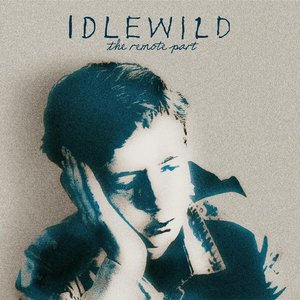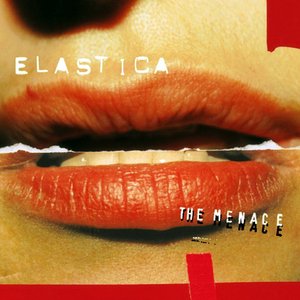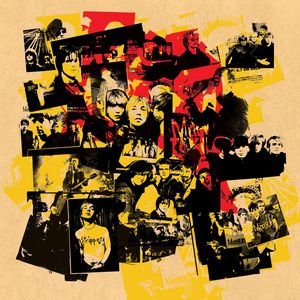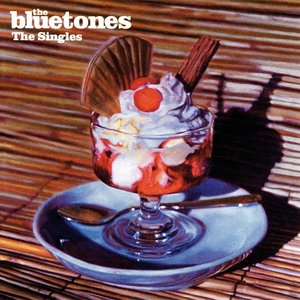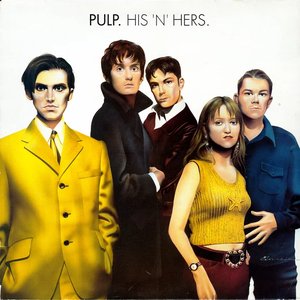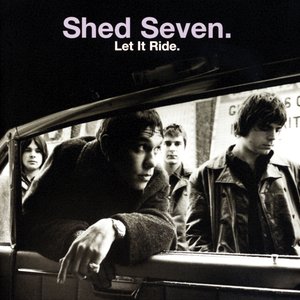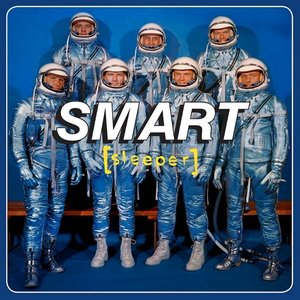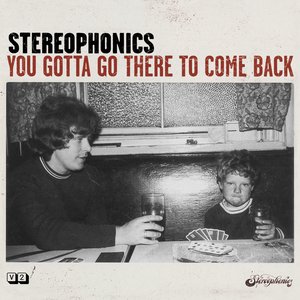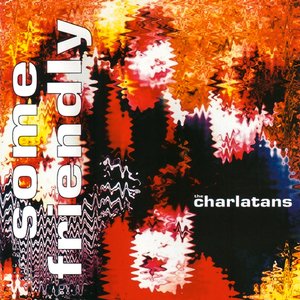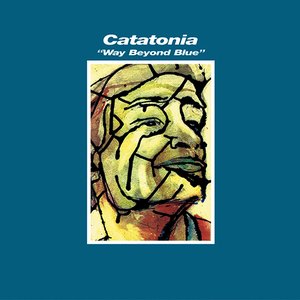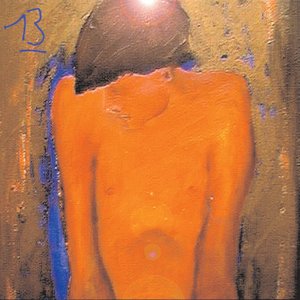Wiki
-
Release Date
26 August 1994
-
Length
13 tracks
The Holy Bible was the third studio album by the Welsh rock band Manic Street Preachers. It was released on August 30, 1994 by Epic Records, a subsidiary of Sony Records, unlike their two previous albums which had been released on the Columbia Records imprint. It peaked at number 6 on the UK Albums Chart.
The first single from the album, "Faster", was released on June 6 and peaked at #16 on the British singles chart. The single marked a new chapter for the band as the material was both lyrically and sonically different than their previous release, the Life Becoming A Landslide EP.
While the album was being written and recorded, lyricist and rhythm guitarist Richey Edwards was struggling with severe depression, alcohol abuse, self-harm and anorexia nervosa, and its contents are considered by many sources to reflect his mental state. The songs focus on themes relating to politics and human suffering. The Holy Bible was the band's last album released before Edwards' disappearance on 1 February 1995.
Whereas lyric duties on the two previous albums were split fairly evenly between Edwards and the band's bass player Nicky Wire, Wire has said in interviews that Edwards wrote about 70-75% of the lyrics on The Holy Bible, which may explain why the lyrical themes were much darker than on later albums following Edwards' disappearance. On the DVD included in the 10th Anniversary reissue of The Holy Bible, Wire said he mainly wrote "Ifwhiteamericatoldthetruthforonedayit'sworldwouldfallapart" and "This Is Yesterday" as well as giving many of the songs their final titles.
The song lyrics consisted of many diary/journal entries made by Edwards, and were, in essence, his final writings before his mysterious disappearance on February 1, 1995. In Q magazine's January 2006 100 Greatest Albums Ever! list, where The Holy Bible came in at #69, it was said of the album: 'Graphic, violent torrent of self-lacerating punk fury which infamously details the horrors in Richey Edwards' head before his 1995 disappearance.'
Edwards' lyrics, as well as being darker, were generally of a more personal nature than on previous albums. Gold Against the Soul had shown that the band were able to write songs dealing with melancholy and despair as opposed to the political themes of Generation Terrorists. Even so they were largely about the effect of the wider culture on the individual. In contrast, the more personal songs on the The Holy Bible are more revealing of Edwards' own mindset. In parallel with the more personal material, many of the albums songs still dealt with the wider political and cultural themes that had dominated Generation Terrorists , though the new songs drew on Edwards' knowledge of political history more than that album. The tone was also angrier and more judgemental in general, with "Archives of Pain" and "The Intense Humming of Evil" being particularly damning indictments of the evil side of mankind's nature.
In fitting with the darker and angrier nature of the new songs, the references used throughout the album's songs and artwork were more obscure than in the past, drawing less from the world of pop culture and more from the shady world of serial killers and political dictators. Edwards' interest in philosophy was also more evident on this album, with nihilism ("I know I believe in nothing but it is my nothing") and misanthropy ("All I preach is extinction") being particularly prevalent. A mood of misanthropy and self-hatred hovers over much of the album, a felling different from, but not unrelated to, the general feeling of pessimism and despair that had pervaded their previous albums.
As well as the subject matter the actual structure of the lyrics was also different from the bands previous albums, eschewing the more polemical nature of old for a more experimental, fragmented approach comparable to the modernist poetry of T.S. Eliot and Dylan Thomas or the lyrics of post-punk frontmen Howard Devoto and Mark E. Smith. As well as ignoring a linear narrative, much of Edwards' writing from this period ignores standard grammar and traditional syntax, creating a rougher, rawer feel that arguably creates an even more expressive lyric due to its jagged edges.
The album was recorded at Soundspace Studios, a cheap (£50 a day) facility in Cardiff, Wales which was usually used to record demos and mixed in Britannia Row Studios, London, England. It was produced by the band with assistance from little known producer Mark Freegard, whose previous work included The Breeders' 1993 album Last Splash. The overall sound of the album is fairly dense with most tracks featuring multiple interwoven guitar parts. Many tracks begin or end with a spoken word sample and there is increased use of flanger effects on the guitar tracks. The recording quality is of a considerably lower fidelity than their previous albums and results in a blurrier, murkier sound that is both harsher and less radio-friendly than the punchier sound of their previous and subsequent albums.
The album is notable for its limited use of instruments compared to the radio-friendly sound of their previous album. The only instruments used on the album are the electric guitar, bass, drums and percussion. Other instruments such as the piano or strings are rarely present on the album - there are small synth parts that can be heard at the beginning of "She Is Suffering" and "Die in the Summertime". However, upon listening, the reasons for this soon become apparent: each song is implicitly linked and related to all the other songs on the album; as such, the album sounds like a complete set of songs that support and complement one another.
"Comfort Comes", a B-side from the previous album Gold Against the Soul, is generally regarded to be the first Manics track to display the musical style of The Holy Bible though its recording quality is much cleaner and less harsh than that of The Holy Bible. In interviews Nicky Wire has also said of the track "Judge Yr'Self", released in 2003 on the B-sides collection Lipstick Traces, to be "very Holy Bible. It's the way Richey wanted us to go, very aggressive and automated, not that Richey had a clue musically".
The Holy Bible is regarded by most critics and fans to be the band's most uncompromising album, and indeed as one of the most introspective, dark and impenetrable albums in rock history. It was compared to Nirvana's 1993 album In Utero in almost every review at the time, which is no coincidence as Edwards had been listening to that album as well as Cranes at the time. The others had been listening to Cranes, Wire, Magazine, Alice in Chains, The Smiths, Joy Division and David Bowie's Low and "Heroes", both considered to be among his most uncommercial work. Although it is thought by some to be the Manics' best album, it sold extremely poorly in comparison to Everything Must Go.
A performance on the BBC's Top of the Pops in support of first single "Faster" resulted in over 25,000 complaints, due to lead singer/guitarist James Dean Bradfield wearing an IRA-style balaclava as part of the band's new military image, a la The Clash's Combat Rock-era style.
The band have said since that the reason for this was because they felt they had lost a lot of focus during the Gold Against the Soul era and believed that having a unified, militant image would bring them together again. The band's military fatigues also represented a change of attitude and newfound intensity that left its mark on the recording, with Bradfield regularly working in the studio for thirteen hours a day. This showed on "Faster" which required approximately thirty-six rewrites over a period of three weeks to end up with the final version which, in Bradfield's words, was "strychnine, like parallel lines with the lyrics". As well as the recording itself, the period of creativity that ultimately resulted in The Holy Bible was equally intense. Edwards was constantly writing during this period as well as reading five books a week, which partly accounts for the numerous obscure references found on the album. The videos for the album's three singles - "Faster", "Revol" and "She Is Suffering" (there was no video made for "P.C.P." which was a double A-side with "Faster") - also featured the band wearing army and navy uniforms.
The album cover is a painting called Strategy (South Face/Front Face/North Face) by artist Jenny Saville. Although the band were originally quoted £30,000 to use the painting by the Saatchi gallery, Saville gave her permission for use of her work for free after a 30-minute telephone call with Edwards in which he described, in detail, each song on the album. Underneath the painting is the tracklisting and above it is the band name and album title, all in the same typeface as Simple Minds' Empires and Dance album. The back cover features a photo of the band in military uniforms and a quote taken from Octave Mirbeau's book The Torture Garden. Of the album title, Edwards said "In every hotel in the world, the only constant is the Holy Bible".
On December 6, 2004, an expanded version of The Holy Bible was released, containing 2 CDs and a DVD. Disc 1 comprised a digitally re-mastered version of the original album plus 4 live tracks.
The second CD was the version of The Holy Bible that had been released in Canada (and was planned to be released in the US, which ultimately didn't happen). It had been re-mixed by Tom Lord Alge, who would go on to mix recordings by Marilyn Manson amongst others and is significantly different from the UK version on Disc 1. Nicky said of the remix that "it does beef it up quite a bit actually, gives it a bit of American savvy". Sure enough, the US mix sounds more like a rock album than the less commercial post-punk sound of the British mix. James also commented on the enclosed bonus DVD interview that the overall sound of the US mix is reminiscent of how the tracks sound live. However, not all of the tracks were considered superior by the band - Nicky stated in the DVD interview that although he considered around eight of the US tracks better than their UK counterparts, "Faster" was a better song in the original mix. James mirrored this opinion, expanding the list to not only "Faster", but "Archives of Pain" and "The Intense Humming of Evil", suggesting that in the original mix they were "closer to their roots".
The DVD features a 30-minute interview with the band, the Manics playing "Faster" on Top of the Pops as well as an acoustic performance for MTV's Most Wanted. It also includes live performances from the Glastonbury and Reading festivals, 3 tracks from TV show Butt Naked, the American video for "Faster", a new film for "Yes" and the "Judge Yr'Self" video previously only available as a video stream from the band's official website. The videos for the singles can be obtained by clicking "enter" when the "R" appears on the screen.
Album descriptions on Last.fm are editable by everyone. Feel free to contribute!
All user-contributed text on this page is available under the Creative Commons Attribution-ShareAlike License; additional terms may apply.
